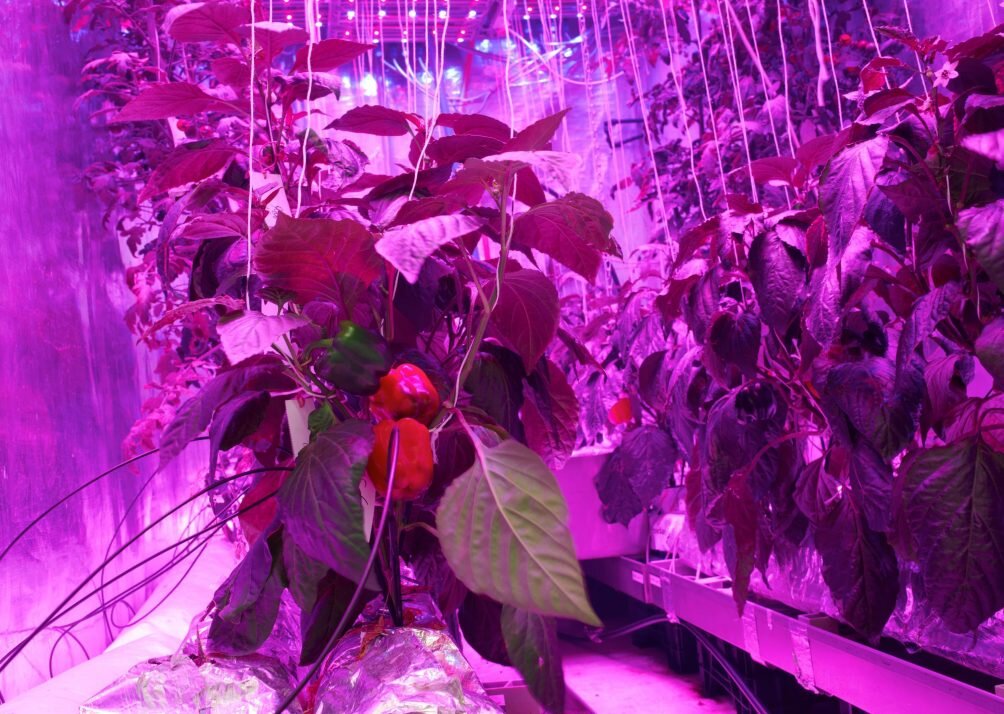photo credit PlantLab
By Lynda Kiernan, Global AgInvesting Media
Dutch startup PlantLab has raised €20 million (US$23.88 million) through its first external funding round from De Hoge Dennen Capital.
Dedicated to advancing hyper-efficient urban farming over the past decade, PlantLab has developed an innovative and revolutionary technology already being used in commercial food production in Amsterdam.
This “globally patented” vertical farming platform allows for the commercial-scale production of fruits and vegetables in proximity to the end-consumer without the use of chemical crop protection. On an area equal to the size of two football fields, PlantLab’s technology can supply produce equal to 200 grams of vegetables per person per day for a city of 100,000 inhabitants.
The company controls the largest vertical farming R&D center in the world located in Den Bosch, and a commercial production site in Amsterdam. And with this growth capital, it intends to pursue an international expansion that includes the Netherlands, the U.S., and the Bahamas.
“This injection of capital will enable us to open up additional production sites and further perfect our technology,” said Michiel Peters, CEO, PlantLab.
“The increasing population of the planet and the climate crisis are posing new and enormous challenges to the production of food for the world’s population. We have no choice but to grow our food more sustainably and efficiently, and that demands innovative and revolutionary solutions.”
In addition to the capital provided, Peters and Frank Roerink, CEO and CFO of De Hoge Dennen respectively, will be joining PlantLab to strengthen the management team which includes founding partners Leon van Duijn, Marcel Kers, and John van Gemert.
De Hoge Dennen is part of the investment company founded by the De Rijcke family that had made previous investments in e-commerce supermarket Picnic, salad producer De Menken Keuken, and electric bicycle brand QWIC.
‘We are convinced that PlantLab’s technology will make a real difference on a global level,” said company CFO Jelle Roodbeen. “It will make healthy and delicious vegetables affordable and accessible to everyone, in an environmentally friendly and sustainable fashion.”
PlantLab offers the flexibility of being able to establish its production sites at any location in the world, even in densely urban or barren areas. Optimal temperatures and moisture levels are controlled, with water usage being as much as 95 percent less than traditional agriculture, and specially developed LED lighting provides the specific wavelength needed for crop photosynthesis.
“Our technology makes it possible to grow crops anywhere in the world very close to the consumer,” said Peters. “The crops then no longer need to be transported over long distances. The result: less CO2 emissions, lower cost, and less food waste.”
Djalil Reghis and Nicolas Denjoy of Agroecology Capital stated in a piece published by GAI News in August 2019 outlining their report addressing their investment thesis for indoor vertical farming, “Food security, food quality, and resources scarcity are the main challenges the global agri-food system is facing. Indoor vertical farming promises to partially address these challenges by producing locally and efficiently fresh, chemical-free, and nutritious food. New farming systems increase yields, use less land and water, and allow a close quality and safety monitoring.”
“These promises and the ability of indoor vertical farming to industrialize high-value crop production have created a perfect window of opportunity to disrupt a multi-billion market (just for the U.S. leafy greens market), leading investors to respond favorably by investing large amounts in this industry.”
We’ve seen this response occurring this year as startups continue to raise capital. In the month of August alone, we saw Singapore’s sovereign wealth fund Temasek and the investment arm of Bayer, Leaps by Bayer, invest $30 million to create Unfold, a new venture that will focus on the development of new vegetable varieties that will play a role in enhancing the quality, sustainability, and efficiency of vertical farming – and IFarm, a Helsinki-based provider of automated indoor vertical farms for the production of fresh fruit and produce, successfully closed on $4 million in funding led by existing investor Gagarin Capital.
Earlier in the year we also saw tech-based vertical farming company Elevate Farms raise nearly $12 million across two deals to bring its technology to the Yukon and other isolated northern territories of Canada, and both Upward Farms and Freight Farms raise $15 million each.
– Lynda Kiernan is editor with GAI Media, and is managing editor and daily contributor for Global AgInvesting’s AgInvesting Weekly News and Agtech Intel News, and HighQuest Group’s Oilseed & Grain News. She is also a contributor to the GAI Gazette. She can be reached at lkiernan@globalaginvesting.com

